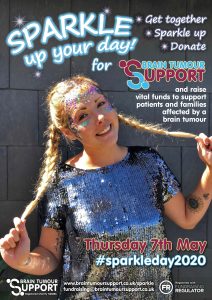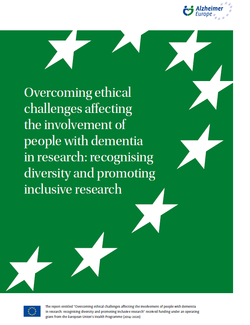
Positive Recommendation by NICE for first anti-CGRP migraine therapy: AJOVY®▼ (fremanezumab)
Teva Pharmaceutical Europe today announced that the National Institute for Health and Care Excellence (NICE) has recommended AJOVY (fremanezumab) in its Final Appraisal Document (FAD) for the prevention of migraine in adults with chronic migraine. NICE recommends AJOVY® for use within the NHS in England and Wales for chronic migraine patients who have not responded to at least three prior preventive drug treatments.
The approval means that eligible migraine patients in England and Wales will join those in Scotland in having access to this new drug on the NHS. Fremanezumab was approved for use in Scotland on 13th January 2020.
AJOVY® is one of several monoclonal antibodies specifically designed to target the CGRP (calcitonin gene-related peptide) pathway, a key contributor to migraine and is the first anti-CGRP preventive therapy approved by NICE. AJOVY ® is a long-acting treatment that offers monthly or quarterly dosing options and can be self-injected. 1
Until the anti-CGRPs were approved, migraine preventive therapies in Europe were limited and none of the commonly used treatments (anti-epileptics, anti-depressants, beta blockers and botulinum toxin injections) were developed specifically to target the molecular pathways of migraine.2
NICE’s decision to approve the use of AJOVY® on the NHS in England and Wales for patients with chronic migraine is fantastic news. Anyone who looks after people with chronic migraine understands just how debilitating this neurological disorder can be. We have waited a long time for this new class of drug to be made available in the NHS, but now that we can prescribe fremanezumab, I am excited to see what a difference it will make to the lives of many of my worst affected patients
Dr Mark Weatherall, President of the British Association for the Study of Headache
Migraine remains under-diagnosed and under-treated in at least 50% of all patients. Less than 50% of people with migraine are not recognised by their general practitioner and less than 30% of migraine patients have management of their disease.3 Migraine typically presents as a moderate to severe throbbing headache, often accompanied by nausea and/or vomiting, with sensitivity to noise, light and/or smell.4
It is estimated that 1 in 7 adults are affected by migraine and women are three times more likely to be affected than men.5 Chronic migraine, defined as 15 or more headache days and at least 8 migraine days per month for more than three months, is estimated to affect around 900,000 6.7 of the adult population in the UK and can have a tremendous impact on quality of life. With 15% of people affected, Europe has the highest percentage of people with migraine of all continents. 8
NICE recommends AJOVY® for chronic migraine patients who have not responded to at least three prior preventive drug treatments. This decision is based on a dossier submitted to NICE for a Single Technology Appraisal (STA). Following issuance of the FAD, NICE will provide its formal guidance to the NHS in England. The full NICE recommendations and conditions can be viewed on their website.
Richard Daniell, Executive Vice President European Commercial, Teva:
This is an important decision to help the lives of migraine patients in England and signifies a recognition of the impact of this disease. Patients’ lives and choices are limited by their migraine. We are proud that Teva’s AJOVY® is the first anti-CGRP preventive therapy that NICE has considered to demonstrate cost-effectiveness leading to a reimbursement decision. In time we hope that this treatment becomes available for all adult chronic migraine patients across Europe.
References
AJOVY®▼ Package leaflet Information for the patient. http://products.tevauk.com/mediafile/id/48238.pdf – Last accessed: March 2020.
Khan S. et al. CGRP, a target for preventive therapy in migraine and cluster headache: Systematic review of clinical data. Cephalalgia. 2019;39(3):374-389
Pavone E, et al. ‘Patterns of triptans use: a study based on the records of a community pharmaceutical department’. Cephalalgia2007; 27:1000–1004.
NHS – Migraine (www.nhs.uk/conditions/migraine/symptoms/) Last accessed: March 2020
Migraine Trust – Facts and Figures https://www.migrainetrust.org/about-migraine/migraine-what-is-it/facts-figures/ (figure based on current UK adult population from the Office of National Statistics – www.ons.gov.uk/peoplepopulationandcommunity/populationandmigration/populationestimates/articles/overviewoftheukpopulation/february2016) [Last accessed: March 2020]
Buse DC. et al. ‘Chronic Migraine Prevalence, Disability, and Sociodemographic Factors: Results From the American Migraine Prevalence and Prevention Study’. J Head Face Pain; 52: 1456-1470. doi:10.1111/j.1526-4610.2012.02223.x
Chronic migraine population calculated by using 12% of migraine population (1 in 7 total population) as cited by Buse (above) amongst context of current UK population statistics from Office of National Statistics. Population estimates for the UK, England and Wales, Scotland and Northern Ireland: mid-2018. https://www.ons.gov.uk/peoplepopulationandcommunity/populationandmigration/populationestimates/bulletins/annualmidyearpopulationestimates/mid2018 [Last accessed: March 2020]
[1] Stovner, L. J., Andree, C. 2010. Prevalence of headache in Europe: a review for the Eurolight project [Online] Available from: https://link.springer.com/article/10.1007/s10194-010-0217-0 [Accessed on 13 September 2018]
About AJOVY®▼ (fremanezumab)
AJOVY® (fremanezumab) is indicated for the prophylaxis of migraine in adults who have at least four migraine days per month. AJOVY® is available as a 225 mg/1.5mL single dose injection in a prefilled syringe with two dosing options – 225 mg monthly administered as one subcutaneous injection, or 675 mg every three months (quarterly), administered as three subcutaneous injections. Like all injections, there is a chance of a skin reaction around the injection site e.g. redness, hardness or itching. AJOVY can be administered at home by a patient or caregiver, if instructed by a healthcare professional. Full product information can be accessed from the Teva website
About Teva
Teva Pharmaceutical Industries Ltd. (NYSE and TASE: TEVA) has been developing and producing medicines to improve people’s lives for more than a century. We are a global leader in generic and specialty medicines with a portfolio consisting of over 3,500 products in nearly every therapeutic area. Around 200 million people around the world take a Teva medicine every day, and are served by one of the largest and most complex supply chains in the pharmaceutical industry. Along with our established presence in generics, we have significant innovative research and operations supporting our growing portfolio of specialty and biopharmaceutical products. Learn more at www.tevapharm.com.




